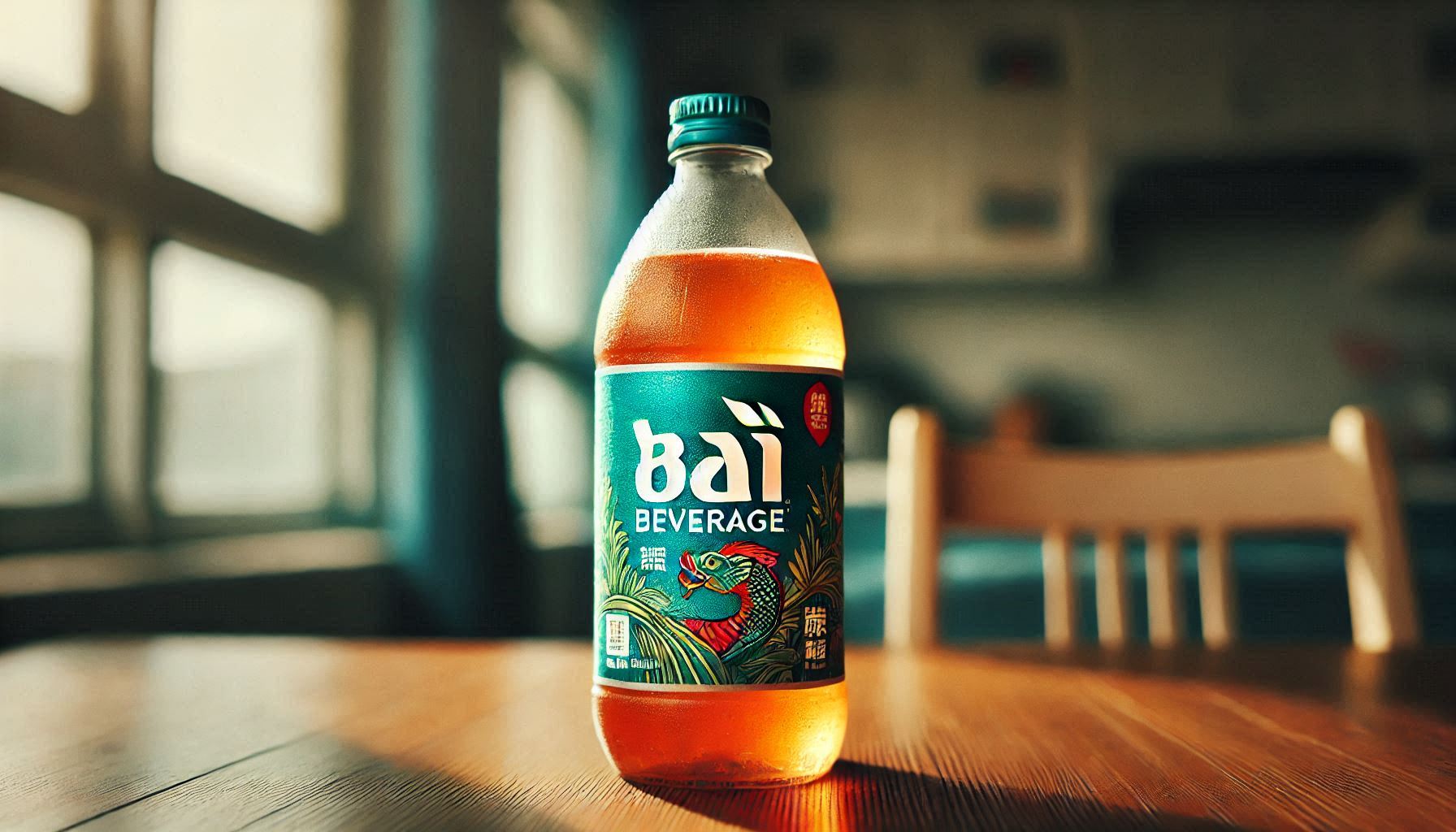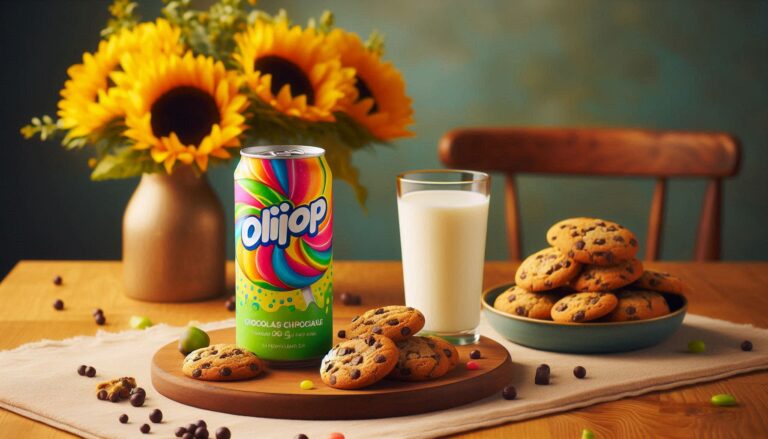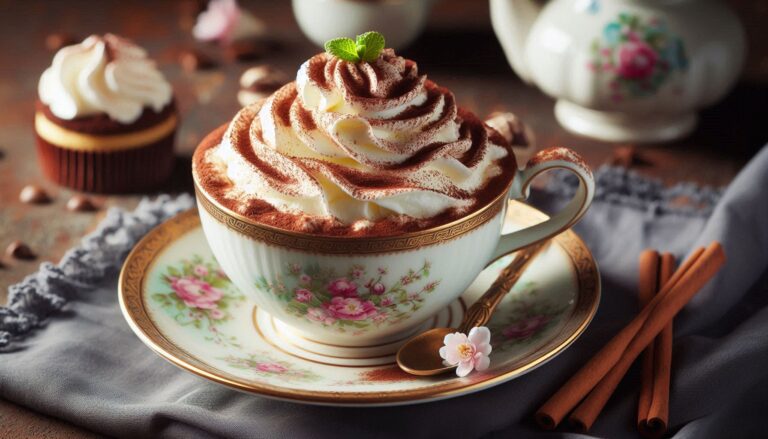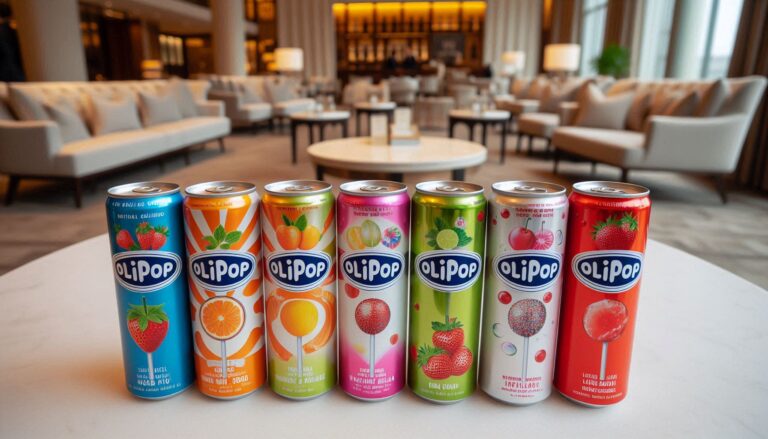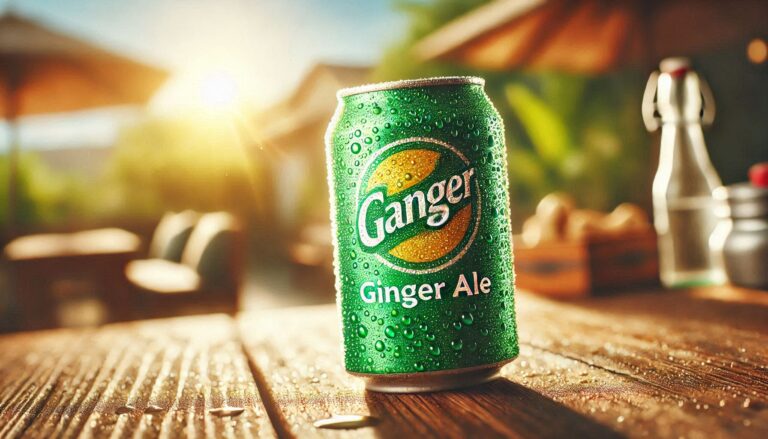What Are the Side Effects of Bai Antioxidant Infusion? A Comprehensive Guide
Bai Antioxidant Infusion has become a go-to choice for health-conscious individuals seeking a flavorful, low-calorie beverage. Packed with powerful antioxidants, low sugar, and natural sweeteners like erythritol and stevia, it offers a refreshing alternative to sugary drinks. With 55 mg of caffeine per bottle, it provides a gentle energy boost without overwhelming your system.
However, while Bai drinks are marketed as healthy, understanding their potential side effects is crucial for making informed choices. From digestive concerns to caffeine-related impacts, knowing how these ingredients interact with your body can help you enjoy Bai safely and responsibly.
Overview of Bai Antioxidant Infusion Ingredients
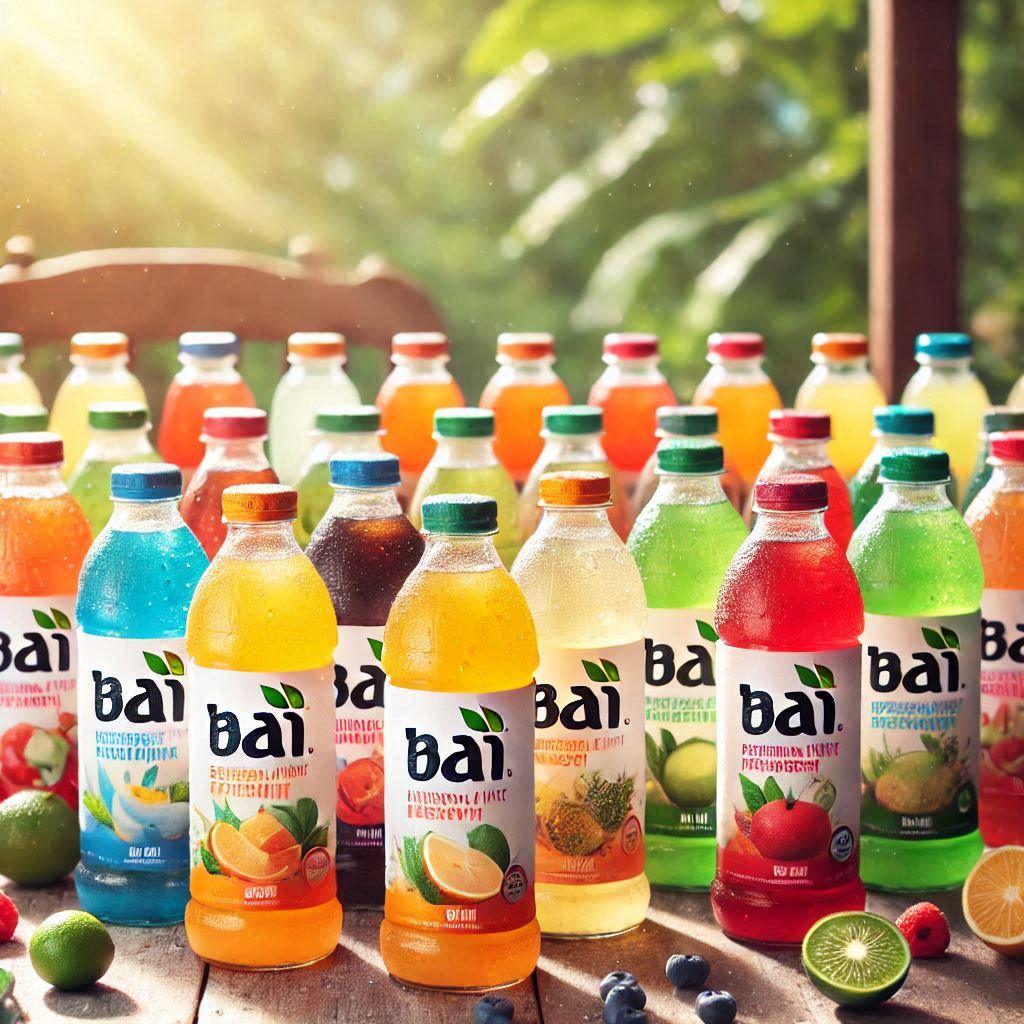
Bai Antioxidant Infusion offers a refreshing, health-conscious alternative to sugary beverages, with a carefully selected blend of ingredients that aim to provide both flavor and nutritional benefits. Here’s a breakdown of the key ingredients that make Bai unique:
Coffee Fruit Extract
At the heart of Bai’s health benefits is its coffee fruit extract, derived from the same plant that produces coffee beans. This extract is packed with antioxidants, which can help neutralize free radicals in the body and potentially support cellular health. Known for its anti-inflammatory properties, it may also boost energy without the jitters associated with traditional caffeine.
Erythritol
Erythritol is a sugar alcohol used as a sweetener in Bai drinks. It provides sweetness without contributing to the calories or spikes in blood sugar that regular sugar causes. Its low glycemic index makes it a favorable option for those watching their sugar intake.
Stevia Leaf Extract
Stevia is another natural sweetener featured in Bai. Derived from the Stevia plant, it has zero calories and a much sweeter taste compared to sugar, though some people might notice an aftertaste. It works in tandem with erythritol to create a well-balanced sweetness in the drink.
Caffeine
While Bai’s caffeine content is modest, it still delivers an energy boost. The caffeine comes from the coffee fruit extract and provides a gentle lift without overwhelming energy spikes. This makes it an excellent choice for those seeking a mild but effective stimulant.
Natural Flavors
Bai uses natural flavors to enhance the taste of its drinks. These ingredients come from fruits and spices, and while they add delicious variety, it’s worth noting that some individuals may have sensitivities to certain natural flavorings.
These carefully chosen ingredients make Bai’s drinks unique, blending antioxidants, low-calorie sweeteners, and a hint of caffeine for a refreshing, potentially health-boosting beverage.
Potential Side Effects of Bai Antioxidant Infusion

1. Digestive Issues:
Impact of Erythritol on Bloating and Diarrhea:
Bai Antioxidant Infusion, like many sugar-free beverages, contains erythritol, a sugar alcohol often used as a sweetener. While erythritol is generally considered safe, it can cause digestive issues in some individuals. Erythritol is not fully absorbed by the body and can ferment in the intestines, leading to bloating, gas, and diarrhea, especially when consumed in large quantities. Those who are sensitive to sugar alcohols might experience these symptoms even after small servings.
Interaction with Low-FODMAP Diets:
Individuals following a low-FODMAP diet for irritable bowel syndrome (IBS) or other digestive disorders may need to be cautious with Bai drinks. Erythritol is a high-FODMAP substance, which means it can trigger symptoms like bloating, cramps, and discomfort in people sensitive to FODMAPs. If you’re on a low-FODMAP diet, it’s advisable to limit the intake of Bai drinks to avoid exacerbating digestive issues.
2. Caffeine-Related Effects:
Jitters, Increased Heart Rate, and Sleep Disruption:
Bai Antioxidant Infusion contains caffeine, which is known to stimulate the central nervous system. While caffeine can provide a quick energy boost, it can also lead to unwanted side effects like jitters, an increased heart rate, and even disrupted sleep patterns, especially if consumed later in the day. Caffeine sensitivity varies from person to person, with some people experiencing more pronounced effects than others.
Tips for Caffeine-Sensitive Individuals:
For those who are sensitive to caffeine, it’s essential to monitor intake to avoid unwanted side effects. Some tips for minimizing discomfort include limiting Bai consumption to mornings or early afternoons, opting for caffeine-free versions of Bai drinks, or slowly reducing the amount of caffeine you consume overall to build tolerance. Additionally, drinking Bai Antioxidant Infusion in smaller amounts over time can help mitigate caffeine-induced anxiety or jitteriness.
3. Allergic Reactions:
Coffee Fruit Extract and Natural Flavor Sensitivities:
Bai drinks contain coffee fruit extract, which is derived from the same plant as coffee but has a different composition. While this extract is rich in antioxidants, it can trigger allergic reactions in people who are sensitive to coffee or related plants. Symptoms may include skin rashes, itching, swelling, or more severe reactions like difficulty breathing in rare cases. If you have a known allergy to coffee or related plants, it’s advisable to avoid Bai drinks or consult with a healthcare provider before consumption.
Symptoms to Watch Out For (Itching, Swelling, etc.):
People sensitive to natural ingredients like coffee fruit extract may experience symptoms such as itching, hives, swelling of the lips, tongue, or throat, or even more severe reactions like difficulty swallowing or breathing. If you experience any of these symptoms, it’s crucial to seek immediate medical attention. It’s always a good practice to check the ingredient list of Bai drinks for any allergens if you’re unsure about how your body might react.
4. Sweetener Effects:
Laxative Properties of Erythritol:
As mentioned earlier, erythritol can cause digestive issues such as bloating and diarrhea. Its laxative effects occur because it draws water into the intestines, which can speed up digestion. This can result in softer stools or diarrhea when consumed in excess. People who experience gastrointestinal discomfort after consuming sugar alcohols should monitor their intake of Bai drinks to avoid these unpleasant effects.
Bitter Aftertaste Concerns with Stevia:
Bai Antioxidant Infusion also uses stevia as a sweetener, which, while natural and calorie-free, can leave a bitter aftertaste for some people. This is particularly noticeable if you’re sensitive to the flavor profile of stevia. The aftertaste can linger and may interfere with the enjoyment of the drink, especially for individuals who are not accustomed to stevia-sweetened products.
Long-Term Effects of Bai Drinks: Safety and Considerations
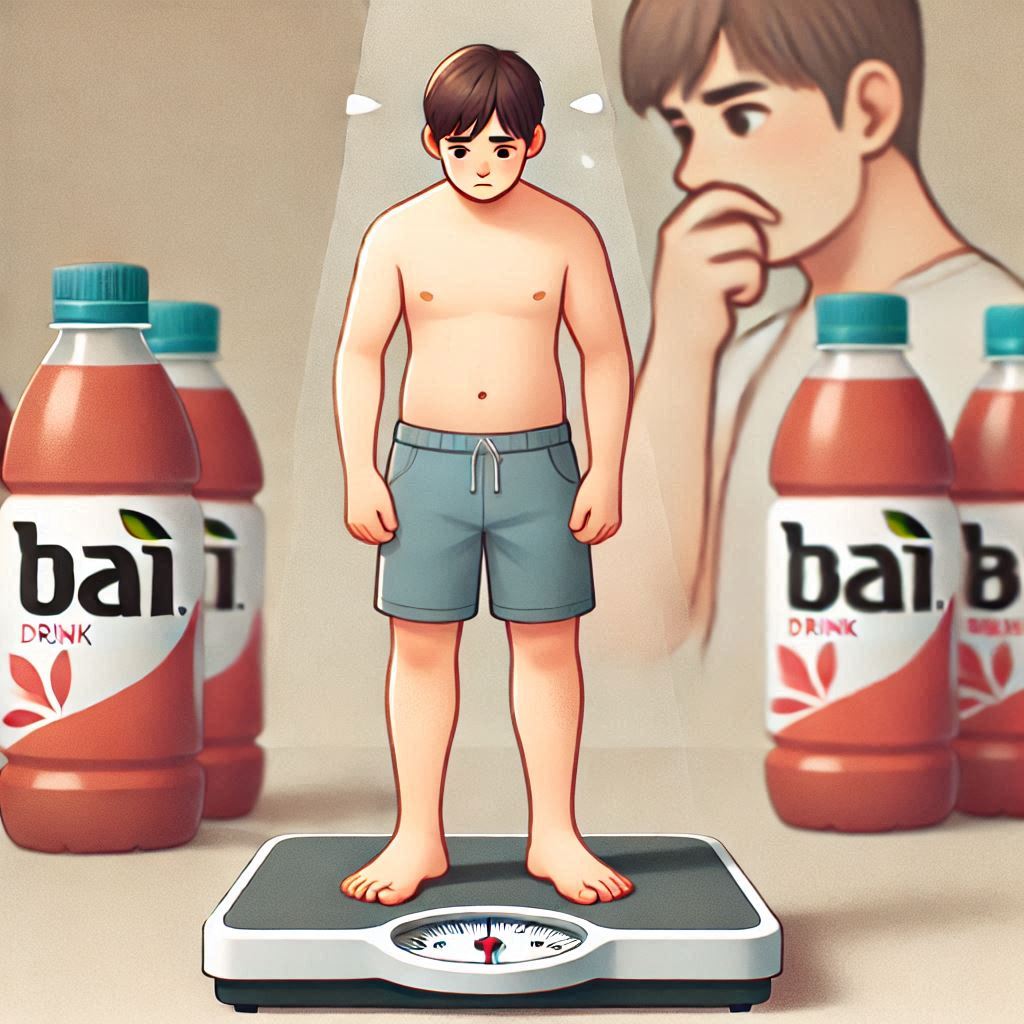
Bai drinks are marketed as low-calorie, antioxidant-rich beverages, often praised for their blend of exotic flavors like pomegranate, coconut, and blueberry. The drinks are made with a combination of natural ingredients, including caffeine from coffee fruit and stevia leaf extract. While these ingredients may offer some health benefits, regular consumption over time can have potential long-term effects on the body.
One of the primary concerns is the use of erythritol and stevia as sweeteners. Both are sugar alcohols that are often touted as healthier alternatives to sugar. Though they are lower in calories, overuse may cause gastrointestinal discomfort in some people. Common side effects from sugar alcohols include bloating, gas, and diarrhea, especially if consumed in large quantities. While these effects aren’t typically harmful in the long run, they can be uncomfortable and impact digestive health.
Impact on Weight Management and Sugar Cravings
A key factor to consider when consuming Bai drinks regularly is how they affect weight management. Bai drinks are marketed as low-calorie beverages, but low-calorie does not always equal weight loss. Drinking Bai regularly can still lead to weight gain if not balanced with overall calorie intake. Since Bai drinks are sweetened with sugar alcohols, they can still stimulate sugar cravings. Even though they are lower in calories than regular sodas, they may trigger a desire for more sweet treats, causing a potential increase in total caloric consumption.
Moreover, consuming sweetened drinks, even those that claim to be low-calorie, may contribute to the body’s desire for more sugary substances. This is because the body can become conditioned to expect sweetness without the caloric load, leading to cravings for more sweetened foods and beverages. Over time, this cycle can undermine efforts to manage sugar intake and control weight, especially if combined with a sedentary lifestyle.
Dependency on Sweetened Drinks vs. Water Intake
One of the most significant concerns with regular Bai consumption is the potential for developing a dependency on sweetened beverages. While Bai offers a flavorful alternative to plain water, it shouldn’t replace water entirely. Hydration is crucial, and water is the best way to hydrate the body. However, relying on flavored drinks like Bai can lead to lower water intake, which in turn may affect overall hydration levels.
Hydration is vital for a variety of bodily functions, including digestion, circulation, and maintaining healthy skin. Even though Bai contains water as a base, it’s still sweetened and flavored, which can result in a less pure form of hydration. Relying too much on Bai or other sweetened beverages might prevent consumers from consuming enough water, which could lead to dehydration over time, especially if it’s the primary source of fluid intake.
Balancing Bai with a Healthy Diet
To enjoy Bai drinks as part of a healthy lifestyle, it’s important to balance their consumption with a diet rich in whole, unprocessed foods. Bai can be an occasional treat rather than a daily staple. When integrating Bai into a healthy diet, it’s essential to consider the drink as part of your overall caloric and sugar intake. If you’re mindful of your diet, Bai drinks can be part of a balanced approach to hydration and nutrition, without derailing health goals.
However, moderation is key. Since Bai drinks are sweetened with sugar alcohols, it’s wise to avoid excessive consumption. In addition, those who are looking to lose or maintain weight should pair Bai with a diet high in vegetables, lean proteins, and whole grains while ensuring they consume sufficient water. Balancing Bai consumption with healthy food choices and regular physical activity can help prevent any negative long-term effects.
Suitability of Bai Drinks for Different Groups
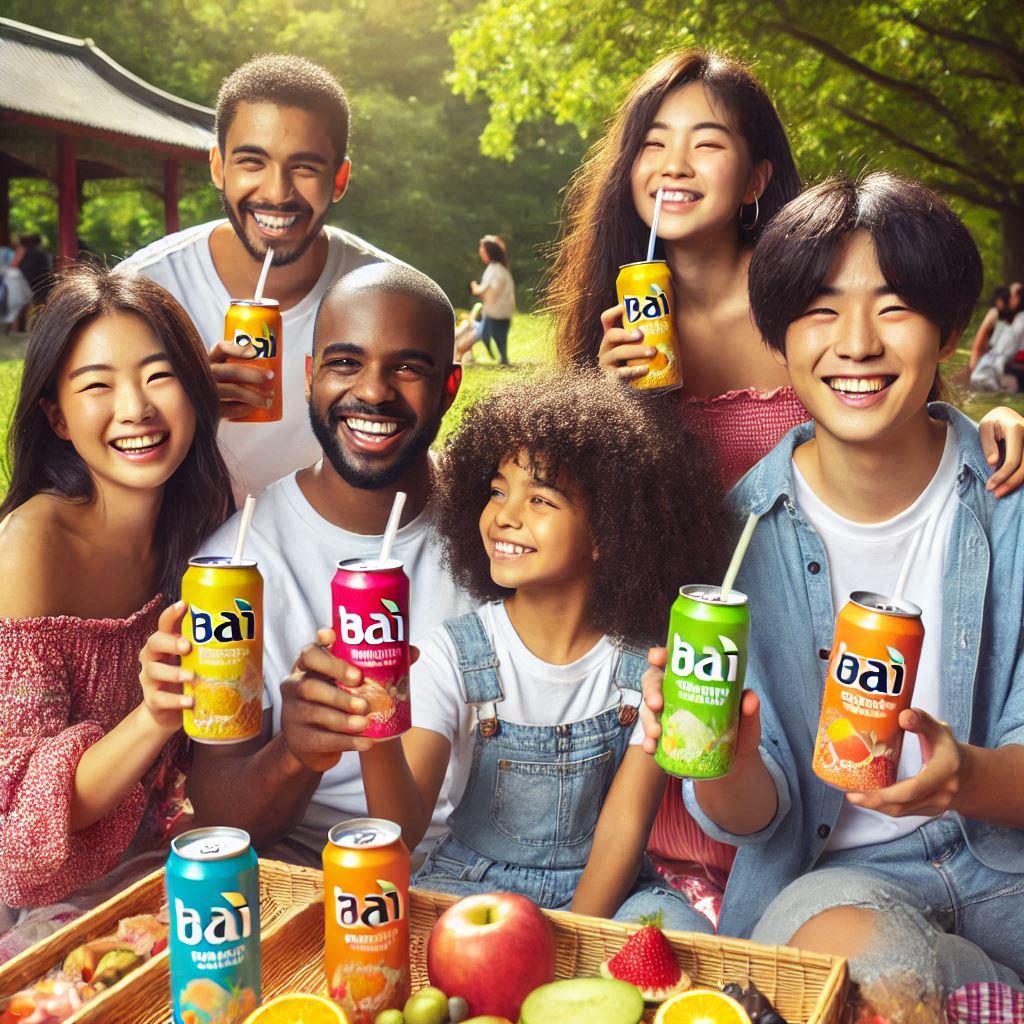
Bai drinks are marketed as low-calorie, antioxidant-rich beverages, and their appeal spans a wide variety of consumers. However, before incorporating Bai drinks into daily routines, it’s important to understand how different groups might react to them. Let’s break it down by key demographics.
Pregnant Women
When it comes to pregnancy, the suitability of any drink, including Bai, should be carefully considered. Bai contains caffeine, though in lower amounts compared to coffee or energy drinks. A typical Bai drink has around 35 mg of caffeine per serving, which is roughly equivalent to a small cup of tea. This makes it a relatively safe option for pregnant women who are looking to limit their caffeine intake, as most health guidelines suggest a caffeine limit of 200 mg per day during pregnancy.
That said, the low caffeine content doesn’t make Bai entirely risk-free. Some women may be more sensitive to caffeine during pregnancy, and its effects can vary depending on the stage of pregnancy. Additionally, Bai drinks contain other ingredients like artificial sweeteners or erythritol, which might cause digestive discomfort in some individuals.
While Bai drinks may be a safer alternative to high-caffeine beverages, it’s always best to consult a doctor or healthcare provider before including them in your diet during pregnancy.
Children
For children, Bai drinks present a mixed bag of benefits and risks. On the plus side, Bai drinks are low in sugar, making them a healthier option compared to sugary sodas. However, the presence of caffeine and erythritol—an artificial sweetener—raises some concerns for younger individuals.
Caffeine can affect children more strongly than adults, potentially leading to hyperactivity, increased heart rate, and disrupted sleep patterns. Bai’s 35 mg caffeine per serving might seem small, but for children, even low amounts of caffeine can be too much, especially if consumed in large quantities. Additionally, erythritol, though generally recognized as safe, can cause gastrointestinal discomfort, such as bloating or diarrhea, in some children.
Due to these risks, it’s advisable to limit Bai consumption for children. Instead, parents may want to opt for caffeine-free, naturally sweetened alternatives that are easier on young bodies.
People with Diabetes
For people managing diabetes, Bai drinks can be an appealing choice. Bai is known for its low sugar content, with many of its flavors containing just a fraction of the sugar found in regular soft drinks. Instead of traditional sugar, Bai uses a combination of stevia and erythritol, which have little to no impact on blood sugar levels.
However, it’s important for diabetics to remain cautious and monitor their blood sugar levels after consuming Bai drinks, especially because the drink may still contain other ingredients that could impact insulin sensitivity. While the low sugar is an advantage, everyone’s body responds differently, and some people with diabetes may be more sensitive to the artificial sweeteners used.
Overall, Bai drinks are generally considered a safe option for diabetics, but as with any dietary choice, regular monitoring and advice from a healthcare provider are crucial.
Allergy-Prone Individuals
For allergy-prone individuals, the most important thing when considering Bai drinks is to carefully check the ingredient labels. Bai drinks are made with a variety of ingredients, including exotic fruit extracts, spices, and artificial sweeteners. While the drinks are generally free of common allergens like dairy, gluten, and nuts, they do contain ingredients such as caffeine and erythritol, which may trigger allergic reactions in some people.
Erythritol, in particular, can cause allergic-like reactions in rare cases, leading to symptoms like headaches or digestive upset. Similarly, certain fruit extracts could trigger sensitivities or allergic reactions in individuals with allergies to specific fruits.
Before consuming Bai, individuals with known allergies should thoroughly review the ingredient list to ensure it’s a safe option for them. If in doubt, consulting a doctor or allergist is a smart move.
Comparing Bai with Alternatives
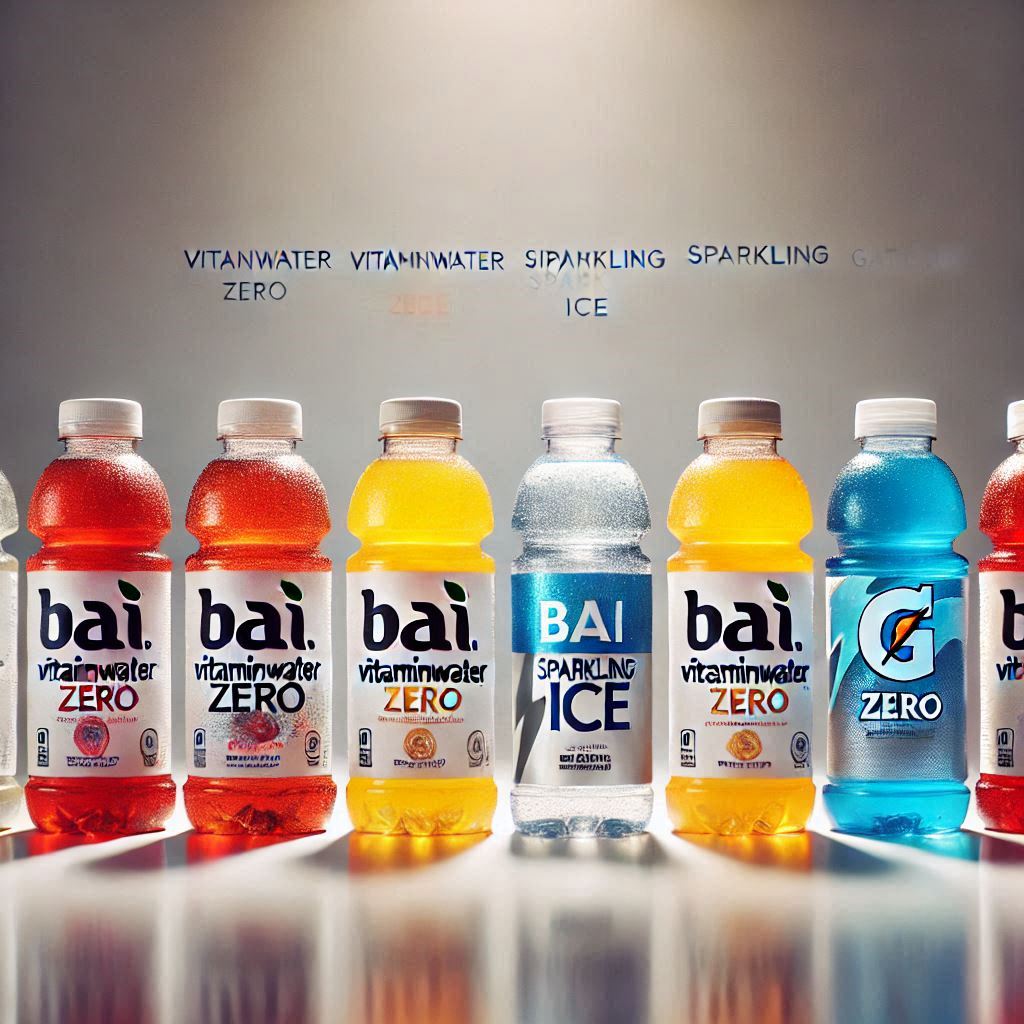
When it comes to low-calorie, antioxidant-rich drinks, Bai stands out for its unique blend of ingredients, providing hydration with health benefits. But how does it compare to other popular beverages on the market? Let’s break it down by comparing Bai with three major alternatives: Vitaminwater Zero, Sparkling Ice, and Gatorade Zero.
Bai vs. Vitaminwater Zero
Both Bai and Vitaminwater Zero position themselves as healthier alternatives to sugary drinks, with a focus on hydration and antioxidants. Bai features coffee fruit extract, which is rich in antioxidants and may offer anti-inflammatory benefits. Vitaminwater Zero, on the other hand, contains electrolytes and vitamins like vitamin C, but its antioxidant profile is not as strong as Bai’s.
In terms of caffeine content, Bai provides about 35 mg per serving, which is a moderate amount for a light energy boost, while Vitaminwater Zero contains no caffeine. When it comes to sweeteners, Bai uses erythritol and stevia, while Vitaminwater Zero relies on artificial sweeteners like aspartame and acesulfame potassium, which may be a dealbreaker for some consumers looking for natural alternatives.
Bai vs. Sparkling Ice
Sparkling Ice is another popular low-calorie, flavored beverage. Like Bai, it offers a refreshing taste with zero sugar. However, Sparkling Ice uses sucralose, a controversial artificial sweetener, while Bai opts for natural sweeteners such as erythritol and stevia. For those looking to avoid artificial ingredients, this is a notable difference.
Caffeine-wise, Bai gives a gentle lift with its 35 mg per serving, whereas Sparkling Ice contains no caffeine, making it a more neutral option for those who are sensitive to stimulants. Additionally, Bai’s key antioxidant ingredient, coffee fruit extract, provides more focused health benefits, whereas Sparkling Ice is mostly focused on hydration with added vitamins and electrolytes.
Bai vs. Gatorade Zero
Gatorade Zero, a popular sports drink, is designed to replenish electrolytes after physical activity, but it lacks the antioxidant content that sets Bai apart. Gatorade Zero uses sucralose as its sweetener, similar to Sparkling Ice, and is lower in antioxidants compared to Bai’s coffee fruit extract. For active individuals looking for hydration and electrolyte balance, Gatorade Zero might be a better choice, but it doesn’t offer the added health benefits that Bai does with its antioxidants and caffeine.
In terms of caffeine, Bai provides a mild energy boost with its caffeine content, whereas Gatorade Zero contains none. This makes Bai a good option for people looking for both hydration and a slight energy lift. Additionally, Gatorade Zero tends to have a stronger focus on electrolytes and sodium, which may appeal to athletes or people engaging in intense physical activity.
Conclusion
Bai Antioxidant Infusion offers a blend of antioxidants, low calories, and natural flavors, making it a healthier alternative to sugary drinks. However, potential side effects such as digestive discomfort, caffeine sensitivity, and allergic reactions should be considered. Moderation is essential to avoid overconsumption of sweeteners and caffeine, and individuals with sensitivities should always check ingredient labels. If you’re unsure about Bai’s suitability for your diet or health needs, consulting a healthcare professional is advisable. By understanding the benefits and risks, you can make a more informed decision about choosing antioxidant drinks wisely.
